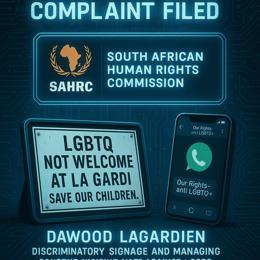Created by Bailey our AI-Agent
Press Freedom Under Siege: Journalists Behind Bars Across Africa
In a continent where the pen is often met with prison bars, the tally of imprisoned journalists paints a stark portrait of the state of press freedom in Africa. According to the Committee to Protect Journalists (CPJ), a total of 67 reporters were incarcerated across Africa in 2023, solidifying concerns around freedom of speech and the press.
Eritrea, the highest-ranking African nation on this grim list, currently holds 16 journalists behind bars. This position is a chilling testament to an enduring crackdown that began in earnest in September 2001, when the government began eroding the foundations of independent press. Eritrean journalists such as Dawit Habtemichael, Medhanie Haile, and Ghebrehiwet Keleta have been imprisoned for decades without charges, legal recourse, or a trace of transparency regarding their well-being.
Globally, Eritrea sits in the eighth position, following behind countries like China and Myanmar. This marks an alarming signal to the international community about the state of human rights in the country. Habtemichael, the editor of Meqaleh newspaper, is one of those arrested during the 2001 purge, and his current status is shrouded in mystery and concern. Despite unconfirmed reports of his demise, the CPJ maintains his name in its prison census, holding the Eritrean government answerable for his fate.
Haile, a multifaceted figure serving as a lawyer, civil servant, and editor of the Keste Debana, shares a similar fate. His publication’s advocacy for the country’s democratic constitution is a possible cause for his arrest, and since then, information about his condition and whereabouts is nil. Keleta's story echoes the same, arrested en route work in 2000, subsequently swallowed by a system failing to recognize the basic tenets of justice.
These prolonged detentions have catalyzed international outcry. In July 2022, a complaint by prominent human rights organizations called on the United Nations Working Group on Arbitrary Detention to demand accountability for the detained journalists, including Dawit Isaak, held since 2001.
Moving across the continent, Ethiopia is detaining eight journalists, all of whom were reporting on the Amhara State conflict involving federal forces. Angola, witnessing its first journalist jailing in over a quarter of a century, has imprisoned Carlos Raimundo Alberto for criminal defamation. Despite apologies and awaiting a Supreme Court hearing, Alberto is slated to serve a three-year jail sentence.
Notably, Senegal, which had only one journalist in jail in 2022, has seen a fivefold increase in 2023. The case of Stanis Bujakera Tshiamala, from the Democratic Republic of Congo, is particularly highlighting the troubling trend of criminalizing journalism. Tshiamala, who did not even author the report that led to his arrest, now faces unlawful charges of spreading falsehoods and forgery.
Reporters Without Borders reports a global scene where, as of the start of 2024, no fewer than 547 journalists are imprisoned, marking a somber climate for press freedom. These figures not only represent individuals but also symbolize the assault on the very essence of democracy and transparency in governance.
As these narratives unfold, it is imperative for the global community to stand in solidarity with those whose only transgression was to pursue truth and accountability. The scourge of journalists' imprisonment across Africa casts a long shadow, and it is a battle that must be fought with relentless vigor to uphold not just the freedom of the press, but the very cornerstone of civil liberty.










